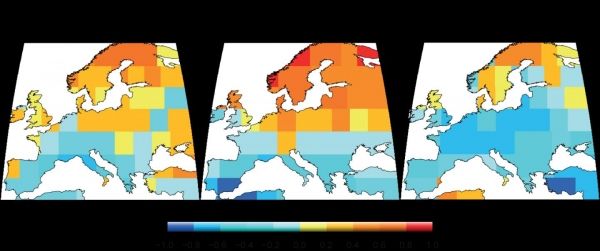An international team of researchers have published a study exploring the association between summer temperature and drought across Europe placing recent drought in the context of the past 12 centuries. The study reveals that, throughout history, northern Europe has tended to get wetter and southern Europe to get drier during warmer periods. They also observe that recent changes in drought patterns are not unprecedented as yet and emphasising that continuing to improve understanding of the relationship between summer heat and drought is critical to projecting flood and drought risks.
The new study, published in Environmental Research Letters, explores the relationship between summer temperature and drought using weather measurements going back to the 18th century and tree-ring reconstructions of temperature and drought going back to the 9th century. The team then compared the picture of past temperature and drought, revealed by the tree-ring records, to simulations from the same climate models that are used to predict future climate.
Read more at: Stockholm University
These are maps showing decadal correlation during the 20th century between instrumental measurements of temperature and precipitation (left), tree-ring reconstructed temperature and drought (middle), and model-simulated temperature and precipitation (right) for the summer season. The stronger the red colour, the more positive (warm = wet) is the correlations. The stronger the blue colour, the more negative (warm = dry) is the correlations. (Photo Credit: Fredrik Charpentier Ljungqvist)


